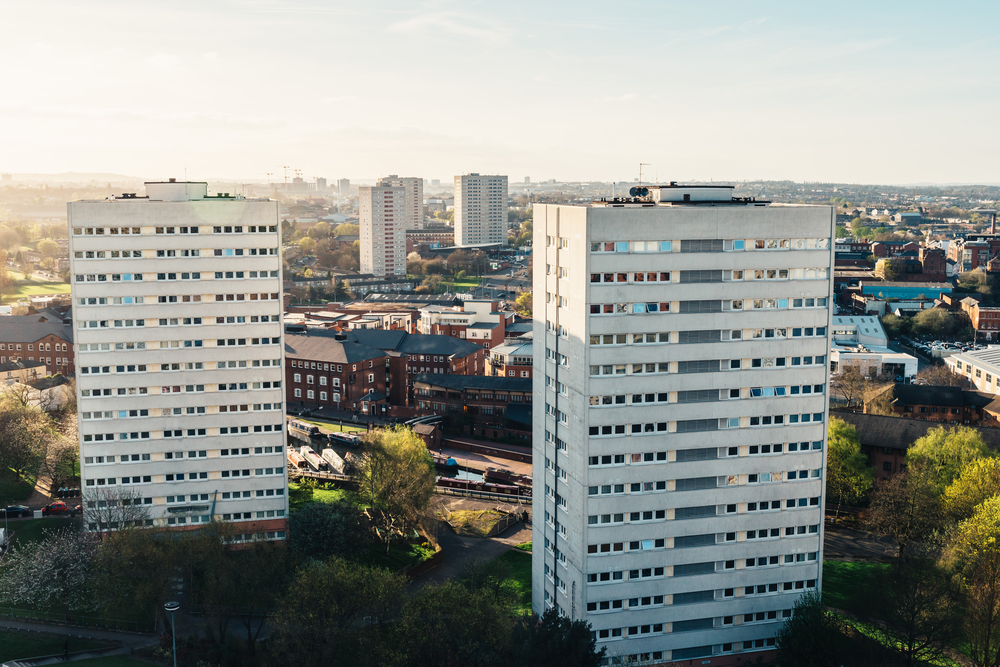The Government should make homes more affordable and more available to first-time buyers, particularly those without financial help, the Building Societies Association (BSA) suggests.
Its report, Age old problems, modern solutions: a roadmap for change, revealed those who were able to get onto the property ladder often relied on the Bank of Mum and Dad or had two higher-than-average incomes, leaving others without these advantages excluded from homeownership.
The BSA said: “Significant changes are required if we are to help prospective first-time buyers get onto the property ladder in the current housing market.”
It comes as the BSA noted there were more than two million fewer owner-occupier mortgages since the peak in 2002.
Update restrictive lending policy
The association said building societies had a “strong track record” of providing “innovative solutions”, but they were restricted by regulation.
The BSA said this should be reviewed to strike a balance between financial stability and enabling access to homeownership.
The report proposed “considering mortgage products that allow households to move home if trapped by negative equity”. It said that, following the pandemic, lenders were more open to supporting borrowers, and although there was still a risk of negative equity, this was not as high.
The report noted the 15% cap on lending above four-and-a-half times income “limited the use of higher loan-to-value [LTV] mortgages in more expensive housing markets”. It suggested that the Financial Policy Committee (FPC) review this to support first-time buyers.
“While the 15% cap on lending above four-and-a-half times income may be less relevant today given higher mortgage rates, an immediate review should be undertaken to assess whether it would be beneficial to adjust the limit and to target mortgages above the cap at first-time buyers,” the report said.
It said there were measures that limited people from “optimising their finances immediately prior to retirement” and the post-retirement mortgage market offered options not available to younger borrowers. It suggested that, due to longer mortgage terms and an ageing population, a review of the pre- and post-retirement mortgage lending market was needed.
The BSA’s report also stated the Financial Conduct Authority’s (FCA’s) Mortgage Conduct of Business (MCOB) rules make it easier to allow part-repayment, part-interest-only lending during a mortgage term to suit a borrower’s changing needs.
For those with lower incomes, less wealth and from groups with lower rates of homeownership, the report said lenders should be allowed to offer more diverse products to increase the diversity of people becoming first-time buyers.
Making homeownership affordable
Its report suggested affordability was the biggest challenge facing first-time buyers, and the deposit required to buy a home had been a “barrier for some time”.
The BSA said that, with two million fewer owner-occupier mortgages since the peak in 2002, the Government should work with lenders, the housing market and the public to make homes more affordable.
It called for the Government to commission an independent review and set out a long-term strategy to increase the number of first-time buyers, with changes implemented within 12 months of the review’s findings.
It also proposed putting measures in place to ensure that house prices would still rise, but not faster than earnings over the long term.
The report suggested this could be done by increasing housing supply, revising the planning system to be more strategic and reforming property taxation to boost market liquidity.
It also said the quality, security and affordability of the private rented sector (PRS) should be improved.
Expensive to be a first-time buyer
Paul Broadhead, head of mortgage and housing policy at the BSA, said: “Becoming a first-time buyer is possibly the most expensive it has been over at least the last 70 years, but a properly functioning housing market is dependent on first-time buyers being able to afford their first home. Whilst building societies are creating bespoke, targeted innovations within the current regulatory framework, new thinking and radical changes are needed.
“There is no silver bullet to increasing first-time homebuyers, and it won’t be possible to help everyone who wants to become a homeowner in the current high price-to-income housing market. But there are many things that can help to fix the broken housing market. That starts with changes to regulations and support schemes that not only help today’s first-time buyers, but don’t fail future generations.”
The Intermediary Mortgage Lenders’ Association (IMLA) said it supported the BSA’s proposals, adding that any housing schemes should be backed by a genuine increase in housing supply.
IMLA also said buy-to-let (BTL) landlords needed encouragement to support the viability of the PRS.
Kate Davies, executive director of the IMLA, said: “We welcome the BSA’s timely report on the challenges facing first-time buyers and their recommendations for a Government review of the market, regulation and housing policy.
“The UK is an advanced economy [that] is home to one of the most diverse, competitive and innovative mortgage industries in the world. And yet we are in the midst of a housing crisis, with fewer affording to buy a home, and more renters struggling to secure accommodation.”
She added: “There is a viable argument for Government-backed first-time buyer support, which must be accompanied by a sustainable plan to deliver more quality, affordable housing on a major scale, in both the private and social sectors.
“In the meantime, IMLA believes that Government needs to acknowledge the crucial role buy-to-let landlords play in the private rented sector, which provides homes for almost 20% of the UK’s households. We believe landlords deserve more support, rather than a punitive tax and regulatory regime [that] threatens to push many out of existence, exacerbating the shortage of rental properties available and pushing up the cost of rent for the remainder.”
Related: Over half of homeowners with adult kids expect to be Bank of Mum and Dad





